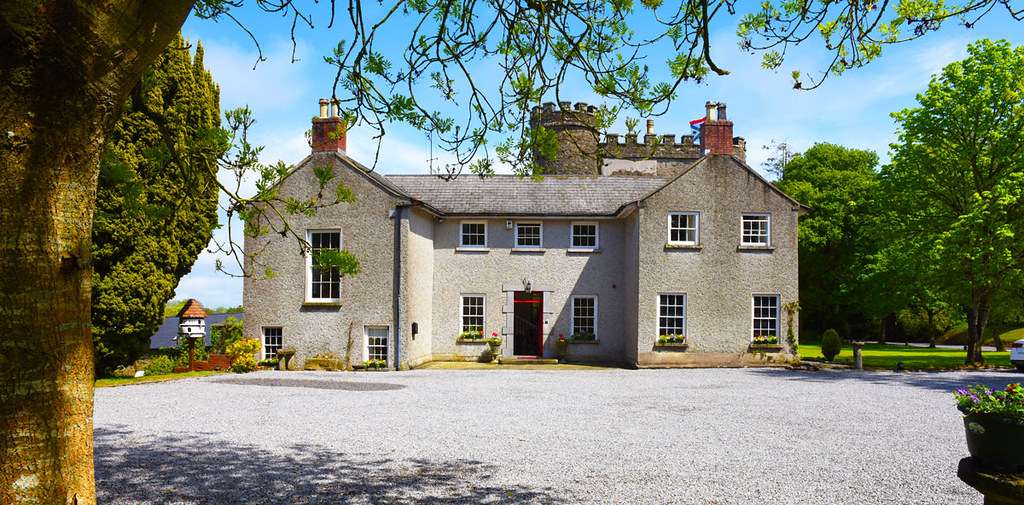Table of Contents
What a Spouse Living With an Alcohol Use Disorder May Experience
If you have an alcoholic partner you will feel as though there are three people in the relationship – you, them and the booze. Unfortunately, due to the nature of addiction, and despite their best intentions, your partner will almost always put the drink first.
You will probably experience a lack of trust in the relationship as your partner lies about their drinking, or minimises the amount they drink. This can be upsetting, especially if you find out by chance (i.e. asking them to drive you somewhere but they can’t because they’ve had a secret drink at lunchtime).
They will often become unreliable as they are either drinking or suffering the effects of drinking and fail to keep appointments or manage their responsibilities. This can mean if you have children, you shoulder more of the family burden, and if you don’t, you find yourself attending events on your own. Either way, you feel lonely and unsupported.
Finances can be strained. Booze costs money, and spending on alcohol (especially if this is hidden from you) can cause considerable problems. If your name is on the bank account, rental agreement or mortgage, you could find yourself responsible for any debt.
You will worry about their health from excessive drinking, and their safety if they injure themselves while drinking. More importantly, if drinking makes them angry or aggressive, you may worry for your own safety and those around you. In this situation, you must seek help or call the police. You need to get yourself and your family out of their presence.
The Challenges of Living With An Alcoholic Partner
You may love your partner very much, but having an alcohol addiction will make them difficult to live with. It is understandable that you will be plagued with anxiety and uncertainty as you try and predict the way the booze will impact your behaviour today.
Alcohol can have a Jekyll and Hyde effect on people – their personality and behaviour change as the drink takes hold. You may feel you walk on eggshells as you don’t know if you’re going to meet a nice sober partner, a happy tipsy partner, a shouty drunk partner or a grumpy hungover partner.
You need to remember that your partner’s alcoholism isn’t your problem to fix. You aren’t the one to pay for the drink, make excuses for their behaviour or take on their responsibilities. In a relationship with an addicted partner, there is often an element of codependency, which means you put their needs first, at the detriment of your own. This can destroy your own feelings of self-worth and damage your mental health.
The challenge is trying to keep everything functioning normally when your partner is controlled by their addiction, and this is especially difficult if there are children involved. Children of alcoholics are more likely to develop emotional problems in childhood and adolescence, and an alcohol addiction in adulthood.
You need to understand that alcoholism is a disease, and just as you wouldn’t be expected to solve everything if your partner had heart disease or kidney disease, the same applies to this alcohol-related disease.
Your partner needs expert alcohol addiction treatment. At Smarmore Castle, not only will they receive the help they need, but so will you, and other members of your family. Family therapy is an essential way of dealing with and recovering from, alcohol addiction.

Download our Brochure
The Treatment Process for Alcoholism
The first step of the treatment process for alcohol addiction is for your partner and you to admit there is an issue with alcohol misuse. This means no more excuses, no more denials, simply accepting that there is a problem and that it requires treatment.
The second step is accessing the treatment. Your GP should be your first port of call. They can signpost your partner and you to organisations that can help. This includes places that deal with addiction, family support services, and places to help with debt or financial insecurity. You can find a list of these here.
Your GP will also be able to prescribe painkillers or other medication to deal with unpleasant withdrawal symptoms. Anyone who has an alcohol addiction will almost certainly have these symptoms, which range from mild to severe when they try to stop drinking.
Withdrawal symptoms include:
The shakes (also known as delirium tremens or the DTs)
- Sweating
- Irritability
- Confusion
- Racing heart rate
- Nausea and vomiting
- Depression
- Insomnia
- Hallucinations
- Seizures
However, physical withdrawal from alcohol is only one part of the treatment process. Your partner will also need therapy. This is to understand why they became addicted in the first place and to develop strategies to ensure they don’t make these choices again.
The safest and most successful way to treat alcohol addiction is at a residential rehab centre such as Smarmore Castle where treatment is bespoke, intensive, holistic and long-term. There, you can access medical, psychological, therapeutic and pastoral care in one place.
Evidence shows there is less chance of relapsing with residential rehab, and support doesn’t end when you leave. Smarmore Castle offers one year of continuing care to maintain sobriety.
How to Talk to Your Alcoholic Partner About Their Drinking
This won’t be an easy conversation and if you think they may get angry or violent, don’t attempt it. Crucially, don’t do it when they’re drunk. Pick a time when they’re sober when one of you is not rushing out the door, and don’t raise your voice.
Explain how concerned you are for their health and the impact it is having on your relationship, and other loved ones. Phrase it from your point of view: ‘I’m worried about your drinking,’ rather than ‘You have a drinking problem’. Give some examples of when alcohol became an issue. Maybe they missed an event that was important to you or embarrassed you in front of your friends as they were worse for wear.
Understand that they might not recognise their alcohol addiction. If, during a conversation, you ask yourselves, ‘What are the stages of addiction?’ they might say they’re still in the sphere of occasional use whereas you would say it’s a fully-fledged dependency.
Explain that you’ll stand by them while they access treatment. Although this isn’t your problem to fix, doing some research and finding out the amount of help there is available could mean they feel supported enough to seek treatment.
You can’t provide that help – they need specialist addiction treatment. Ask them to contact Smarmore Castle for free non-judgmental advice.
Quick Assessment & Admissions

How to Cope With an Alcoholic Spouse
Firstly, you don’t have to cope with this. There is nothing to stop you from walking away, and although that is easier said than done, especially with family and financial ties, sometimes this is the right thing to do.
Studies show that wives of alcoholic men tend to use three coping strategies:
• Engaged coping: monitoring the drinking, watching the spouse at all times, and keeping an eye on the finances. This is very draining but can make you feel you are in control.
• Tolerant coping: giving your spouse money, accepting that they drink. This results in little conflict but it enables the addiction to continue.
• Withdrawal coping: avoiding your spouse and not being around them when they drink. This can lead to you feeling isolated, lonely, and depressed.
All of these coping strategies are damaging to your own mental health and self-esteem. You shouldn’t adapt to alcoholism, the alcoholism needs treatment.
The Dos and Don’ts When Cohabiting With an Alcoholic
- DO look after yourself. This means prioritising your own health and well-being and your physical and mental health. This can be really tough if you’re constantly worrying about your partner, but it is essential. Do things that make you feel good, such as exercising, seeing friends or having time for yourself.
- DO try and live as normal a life as possible. Stick to a routine where you eat at regular times and go to bed at the same time every night. Your partner’s timekeeping may be chaotic, with late nights and mornings spent in bed. Keeping to your own routine will enable you to feel in control of your life.
- DO look for and accept help. There is plenty of support out there for the loved ones of people with alcohol addiction. Al-Anon supports anyone affected by another person’s drinking. Not only can they give you expert advice, but they also have free support groups around the country where you will meet people in the same situation as you, and realise you are not alone. Your anonymity is assured.
- DO signpost them to help and support. Offer to accompany them to their GP who can help with referrals and prescribe medication for the effects of alcohol (such as painkillers to help with unpleasant withdrawal symptoms). Residential rehab places, such as Smarmore Castle can help them detox while unpicking the root cause of their alcoholism and provide therapy so they stay sober.
- DON’T try and fix the problems caused by your partner’s alcoholism and enable them to continue their behaviour. This means not paying for their drink, not calling in sick for them at work, not making excuses to friends and family, not taking on more of their responsibilities and so forth. Putting on a brave front leads to poor health, physical misery, relationship discord, strained social relations and financial burden.
- DON’T think you are responsible for your partner’s drinking or believe the addiction is your fault. They may say you made them go to the pub as you were having a go at them, you made them angry as you brought up the subject of money or you made them lose their job as you wouldn’t ring in sick for them. This is simply abuse.
- DON’T be in denial about the alcohol misuse. Constantly forgiving them for treating you badly, running up debts, neglecting their responsibilities, damaging their own health and giving them chance after chance to change, is not doing you or them any good. They need intensive addiction treatment at a centre such as Smarmore Castle.
- DON’T stay in the relationship if you feel unsafe around your partner. It is never easy to leave but if you feel you, and any other family members, especially children, are in danger, call the police. Alcohol Change UK has a list of family support services here. Refuge is a charity that supports women experiencing domestic abuse.
Find Alcohol Treatment Near You
Your GP can direct you to any local organisations that may help and Alcoholics Anonymous has free meetings throughout the country. There will be a group near you.
Alcohol addiction is a serious disease that requires intensive treatment, and the best way to kick the dependency once and for good is with residential rehab.

Frequently Asked Questions
What Is It Like Living With an Alcoholic?
Emotionally exhausting, financially draining and possibly dangerous.
How Do You Survive Living With an Alcoholic?
Prioritising your own needs, realising it isn’t your problem to fix and asking for help.
What Are the Long-Term Effects of Living With an Alcoholic?
It can destroy trust, intimacy, your own feelings of self-worth, ruin your relationship and tear your family apart.



